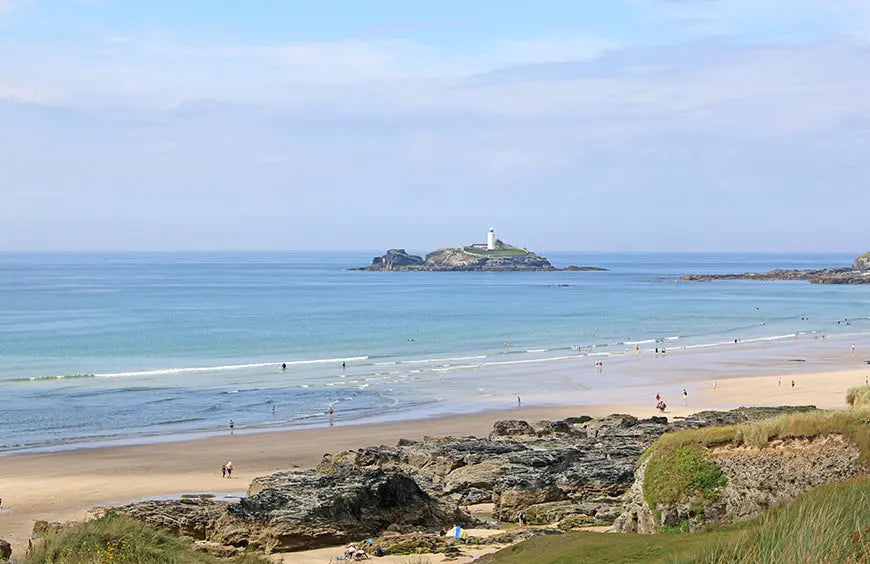
The Benefits of Blue Space
That calming ocean breeze, the gentle crashing of the waves, the nostalgia of fish ‘n’ chips or a well-deserved cocktail in hand – whether you’re on staycation or you’ve ventured out for a day by the coast, it turns out that a little ‘vitamin sea’ really is good for the soul.
‘WAVE-EXPOSED COASTLINES COULD HAVE ADDED BENEFITS WITH RESEARCH SUGGESTING THAT NEGATIVE IONS RELEASED BY BREAKING WAVES ALTER OUR BIOCHEMISTRY…’
Of course, not all of us can be lucky enough to live near the coast. A propensity to visit regularly also has great value, as does simply finding your nearest river, lake, stream or brook and dedicating time in your week to mosey along its banks. For the more active among us, see what activities you can do to get you on the water. Wild swimming has exploded in popularity across the UK, as has paddle boarding, both of which you can do in cities like London, Manchester, Liverpool, Newcastle and Belfast. Rowing, boating, rambling, diving and freediving all serve as brilliant alternatives.
Studies have found that physically being out in nature provides a transition towards thinking outwards towards the environment and can help put life into perspective. Water-based activities do add another element as you have to focus on and tune in with the natural elements, whether that be wind force, currents, tides or changing weather. Whatever it is that is connecting you to the water, you are immersed in that blue space, which can be incredibly meditative. In fact, simply looking at a body of water changes our brain frequency, which puts us into a more meditative state. Whether it’s crashing waves or ripples created by tiny fish – large bodies of water allow us to surrender, even just for an hour or so.
‘Our bodies have been shaped and formed by water – we have an ocean inside us. Like the Earth, we are 70% saltwater,’ Dr. Britton writes, in Issue 04. We couldn’t have put it better ourselves.
Source: Oceanographic Magazine
